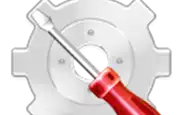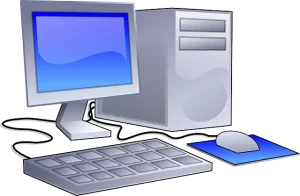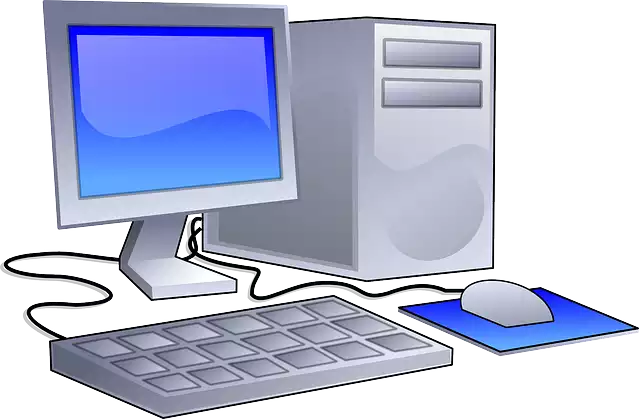In a world dominated by digital interfaces, having fine-tuned computer skills is akin to speaking a global language fluently.
From global commerce to local administration, desktop computers are the backbone that enables efficiency and innovation.
It’s the one tool you can’t afford to be illiterate in.
Understanding the spectrum of skills spanning from simple word processing to complex data analysis sets you apart in the modern workplace.
Whether for personal growth or career advancement, mastering these skills is crucial; they are as fundamental as reading and writing once were.
This article aims to be your compass in the digital jungle, guiding you from the basics to specialized competences across diverse job landscapes.
Prepare to navigate the various strata of desktop computer knowledge, learn how to present your digital expertise to potential employers effectively, and discover educational resources to expand your electronic expertise.
Welcome to “Mastering Desktop Computer Skills: A Comprehensive Guide,” your portal to becoming digitally adept in an increasingly computer-centric world.
Table of Contents Mastering Desktop Computer Skills
What are computer skills and why are they important?
Computer skills are the new literacy of our digital era—an umbrella term that includes the knowledge and abilities to efficiently perform tasks across various digital platforms and devices.
Far from being confined to surfing the web or typing documents, computer skills are essential and diverse, touching every corner of the professional sphere.
For instance, IT professionals and programmers harness these skills to construct intricate technology systems, while accountants rely on industry-specific software.
With digital savvy no longer a luxury but a necessity, it’s no wonder that more than 70% of jobs in the U.S.
in 2022 demanded that candidates boast a robust set of digital capabilities.
Acquiring and honing these skills—whether it’s mastering spreadsheets on Google Sheets, engaging with customer relationship management systems, or leveraging the full potential of Adobe Creative Suite for graphic design—opens a world of possibilities.
Not only do they fortify your resume, making you a magnet for potential employers, but they also expand your ability to communicate effectively, manage projects, and dive into cutting-edge fields like machine learning and artificial intelligence.
Opting for online courses or delving into tutorials enhances your digital proficiency, further fortifying your marketability and paving the way for career advancement in an increasingly digital society.
Examples of essential computer skills for different industries and job titles
Modern industries and job roles are becoming progressively intertwined with digital competencies, necessitating a variety of essential computer skills tailored to each domain and title.
Consider this; Accountants must exhibit proficiency in accounting software like QuickBooks, SAP, or Xero, paired with advanced capabilities in spreadsheet software such as Microsoft Excel for financial analysis and reporting.
Data Entry Clerks are expected to showcase not only impressive typing speed and accuracy but also a deep understanding of data entry systems, coupled with an adeptness in spreadsheet software for efficient data organization.
Medical Doctors, in the healthcare sector, rely heavily on Electronic Health Record (EHR) systems, must be conversant with medical billing and coding software, and need to navigate medical research databases proficiently.
Technical Project Managers set themselves apart by mastering project management software like Microsoft Project or Jira, understanding Agile or Scrum methodologies, and harnessing collaboration tools such as Slack or Trello for seamless team communication.
In the realm of design and architecture, AutoCAD Drafters are anticipated to possess significant proficiency with AutoCAD or comparable software to create precise technical drawings and designs.
Every industry and position demands a unique list of skills, and it is the specialization in these skills that can make one an indispensable asset to their field.
Computer skills for administrative roles
In administrative roles, it’s paramount to have a stronghold over various computer skills that increase efficiency and productivity.
Among these, the ability to utilize word processing, navigate spreadsheets, manage email communication effectively, and leverage data analytics stands out.
Administrative professionals are expected to have a firm grasp of Microsoft Office Suite and G Suite tools for day-to-day operations.
An edge in the administrative realm can be achieved by intensifying knowledge in graphic design and data visualization—capabilities that are becoming increasingly important in today’s data-driven world.
Proficiency in technology tools such as Zoom for virtual meetings or familiarity with marketing automation platforms can drastically enhance the efficiency of administrative tasks.
It is also crucial for professionals in this field to prominently feature their current computer skills on platforms such as LinkedIn and their resumes to maintain competitiveness in the evolving job market.
Computer skills for creative roles
The canvas of computer skills for creative roles is wide and varied, encompassing an array of tasks from graphic design to video editing, all demanding a high level of proficiency in specialized software.
Adobe Creative Suite, for instance, stands as a cornerstone in this landscape, offering tools essential for graphic designers, videographers, and other creatives looking to produce high-caliber work.
In creative roles, being adept in software for graphic design, video editing, and data visualization is not merely an advantage—it is the groundwork for success.
Mastery over marketing automation software also plays a significant role for creatives, particularly for those looking to streamline their workflow and deliver impactful campaigns.
Furthermore, skills in creative tasks such as graphic design, video editing, and utilizing various software applications for data visualization signpost a creative professional’s ability to thrive and innovate in their roles.
Computer skills for technical roles
In today’s fast-paced digital world, evolving your desktop computer skills is paramount, especially if you’re eyeing a technical role.
Proficiency in advanced capabilities such as coding, comprehensive data analysis using Excel, and grasping cybersecurity concepts isn’t just impressive, it’s often essential.
Technical vocations including IT and programming necessitate a wide spectrum of computer skills to innovate and construct intricate technology systems and software development.
Moreover, these roles demand not just experience, but also an official acknowledgment of your skills through certifications and specialized training, significantly boosting your employability and credibility.
Furthermore, for accountants, possessing computer skills extends beyond elementary calculations.
You’re expected to navigate through sophisticated accounting and payroll platforms, alongside efficient electronic tax filing.
With technical industries, specificity is key.
They look for niche expertise, such as data analytics which mandates adeptness in statistical software and spreadsheets, critical for duties such as data examination and report generation.
Here’s a table showcasing key computer skills by category:
| Technical Skills | Software/Tools |
| Coding | Programming tools |
| Data Analysis | Excel, Google Sheets |
| Cybersecurity | Security software |
| Accountancy | Accounting & payroll software |
To stand out, consider taking online courses to sharpen both soft and technical skills, delve into project management tools or a visualization tool, and familiarize yourself with operating systems.
Equipped with these computer skills, you’re sure to catch the eye of potential employers who value technical prowess tailored for their specific job description.
Tips for listing computer skills on a resume
Are you crafting a standout resume but struggling to weave in your desktop computer skills? Here’s a pro tip: integrate these proficiencies across your professional summary, skills section, and work experience.
Don’t let your talents go unnoticed by tucking them into a corner; instead, let them shine naturally through your achievements.
Here’s how:
- Professional Summary: Kick off with a bang by mentioning how your advanced computer skills have contributed to your achievements.
- Did your mastery of Google Analytics drive a marketing campaign’s success? Make sure it’s front and center!
- Skills Section: Create a powerful list of skills, but be selective.
- Combine soft skills with technical wizardry, like blending effective communication with Google Docs proficiency.
- Equip yourself with basic knowledge of Operating Systems, Google Sheets, and machine learning to meet the basics of any job description.
- Work Experience: Validate your technical skills with concrete examples.
- Did you enhance customer relationship management using a CRM tool? Place this under the relevant role.
- Whether it’s a visualization tool, Google Drive, or social media platforms, let potential employers see where you’ve left your digital footprint.
Incorporate arrows that point to your achievements, directing attention to the areas where your computer talents made a significant impact.
Remember, excellent computer skills go beyond software; showcase your ability to adapt to desktop environments, mobile devices, and even emerging technologies like artificial intelligence.
Keep it concise, relevant, and above all, impactful.
Strategies to improve and showcase computer skills in the workplace
In today’s fast-paced digital landscape, sharpening your desktop computer skills is not just an advantage—it’s a necessity.
Enhancing productivity requires navigating a variety of software, managing data, and conducting internet research that leads to more precise and efficient task completion.
In the digital age, fundamental computer skills underpin effective communication, acting as catalysts for career advancement.
Improving employability entails showcasing critical computer skills in a resume summary that resonates with the job description.
By investing time in learning and enhancing skills in data analytics, statistical software, spreadsheets, and data visualization, one can dramatically elevate career prospects in a multitude of domains.
With the workplace increasingly dominated by technology, continuous learning is pivotal to remain competitive and maintain job market relevance.
Taking online courses and certifications
Online platforms such as Coursera, LinkedIn Learning, and Udemy have unlocked a treasure trove of resources for honing your computer skills.
From basic computer skills to advanced domains like coding and data science, there are dedicated bootcamps primed for career preparation.
Tech giants like the G-Suite Learning Center and Microsoft offer courses tailored for skill development.
Additionally, numerous free tutorials and FAQ pages can be found on these technology company websites, providing targeted learning opportunities.
Remember the power of YouTube tutorials, where practical demonstrations can fortify your understanding and software proficiency.
Participating in technology-related projects
Immersing yourself in technology-related projects can rapidly amplify your familiarity with different software features, including automation capabilities crucial in reducing manual errors.
This engagement increases productivity and helps you hit those critical project deadlines.
Whether it’s programming languages like Python, Java, JavaScript, C++, C#, Ruby, PHP, or SQL, mastering the right one can substantially contribute to a range of projects from web development to software applications and data analysis.
Commence by examining documentation, tutorials, and resources such as video walkthroughs, forums, and community discussions to gain actionable insights and practical tips.
When showcasing these computational achievements, use action verbs to demonstrate the tangible impact of your skills, and underscore how they propelled projects forward.
Stay abreast of the latest technology trends by attending workshops, joining professional organizations, and continuously engaging with online courses to refine your project contributions.
Offering to train and support colleagues
Empowering colleagues with digital literacy creates a more dynamic and effective work environment.
Organizations like Goodwill Industries International partner with Northstar to dispense high-quality digital literacy training to diverse groups, including those impacted by unemployment, veterans, or the criminal justice system.
This collaboration manifests through literacy assessments and a well-structured curriculum, enabling digital literacy education for all levels.
Northstar’s initiative is commendable for its role in helping learners and instructors understand that digital literacy is attainable regardless of background or past experience.
Literacy Minnesota’s partnership with Northstar exemplifies efforts to bridge the digital divide, supporting higher education and ABE communities in Louisiana.
Northstar’s tools and standards are integral in enhancing digital literacy training and support across various communities, proving to be invaluable for a plethora of institutions and organizations.
Basic computer skills to master before high school
Embarking on the journey to high school brings a host of academic and technological challenges.
Equip your child with the mastery of basic computer skills to ensure their success and confidence.
Keyboarding stands at the forefront of essential skills.
Formal instruction lays the foundation to avoid the pitfalls of bad typing habits.
| Skill | Goal |
| Keyboarding | Develop good habits early to prevent future issues |
| Typing Speed | Middle schoolers should aim for 15-25 WPM |
| Typing Technique | Learn not to look at keys or “hunt and peck” |
| Early Proficiency | Master skills before high school challenges |
| Encourage Learning | Begin in middle school to refine computer usage |
Children should strive to accurately type at a speed of 15-25 words per minute in middle school.
This speed sets a solid pace for the more intensive computer work they’ll encounter.
Encouraging children to avoid “hunt-and-peck” typing or constantly looking down at the keyboard is vital for effective keyboarding habits.
Mastering these skills before high school is advised, as they are foundational to meeting the higher demands they will face.
By nurturing an early proficiency in keyboarding, children refine their skills, ensuring they are well-prepared and can focus on the more advanced computer tasks in their upcoming educational journey.
Computer skills relevant for teachers
Are you a teacher looking to enhance your desktop computer skills? In today’s digital age, having a solid grasp of specific technical skills is not just an asset; it’s a necessity.
Here’s how you can stay ahead:
Firstly, become proficient in word processing programs to streamline your communication with peers and students.
Mastery of Google Docs and other word processors is key.
Next, dive into project management software such as Microsoft Project and JIRA.
These tools are essential to keep your educational projects on track and efficiently organized.
Additionally, understanding project management methodologies like Scrum, Kanban, and Lean can transform your teaching workflows, making them more effective.
To really push the envelope, engage in complex projects that require data analysis, software development, or multimedia creation.
Boost your Programming skills by developing web applications with current programming languages.
And if you need a structured path to improving your digital literacy, turn to resources like Northstar Online Learning.
Their lesson plans and teaching guides are designed to foster interactive, student-centered learning.
Remember, with the right set of computer skills, you can not only meet job descriptions but also exceed potential employers’ expectations.
Key Computer Skills for Teachers:
- Word Processing (Google Docs)
- Project Management Tools (Microsoft Project, JIRA)
- Understanding of Project Management Methodologies (Scrum, Kanban, Lean)
- Programming Skills (for creating web applications)
- Interactive Teaching Techniques (Northstar Online Learning resources)
Resources and tools for learning and improving computer skills
Are you ready to enhance your desktop computer skills and become more appealing to potential employers? Here’s a concise guide on the resources and tools you’ll need to master both the fundamental and advanced aspects of computer proficiency.
Online Learning Platforms:
- Online Courses: Enroll in courses that cover a broad list of skills, from Google Sheets to machine learning.
- YouTube Tutorials: Find step-by-step video tutorials to gain basic computer skills or dive into programming.
- Written Guides: Various websites offer written content that can drill down into software skills like Adobe Creative Suite or content management systems.
Practical Application:
- Hands-On Projects: Engage in tasks requiring Google Analytics, customer relationship management, or graphic design software.
- Professional Communities: Forums and social media platforms permit interaction with experts, keeping you abreast of new trends and software capabilities.
Project Management Software:
- Microsoft Project
- JIRA
Skill Assessment Resources:
- Basic Computer Skills Assessments: These evaluations provide a structured learning path that can cover everything from operating systems to security protocols.
With the right blend of online resources, practical projects, community advice, and project management tools, your journey toward excellent computer skills is well within reach.
Enhance your technical and soft skills, like effective communication, ensuring your resume aligns perfectly with any job description.ication, ensuring your resume aligns perfectly with any job description.







